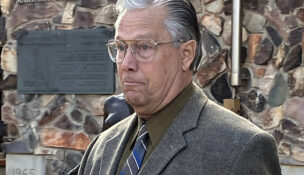The enigmatic Bryan Ginter weighs in — on everything
Arizona Capitol Reports Staff//March 20, 2009//[read_meter]
The enigmatic Bryan Ginter weighs in — on everything
Arizona Capitol Reports Staff//March 20, 2009//[read_meter]
Bryan Ginter submits his personal recommendation on just about every bill that comes before the Arizona Legislature — from his computer at home. But he first had to sign up...
No tags for this post.

















